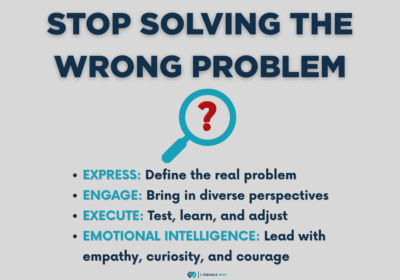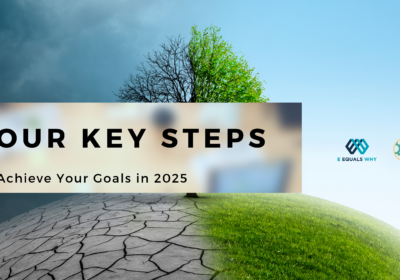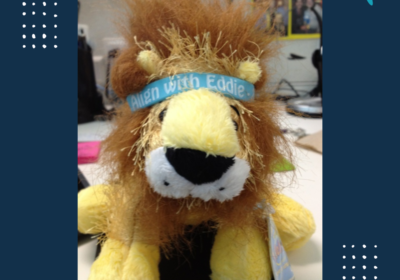
Do you have a book that you read a number of years ago that has stuck with you? Do you remember the name? The story? Or, maybe just the feeling you get when you think of the book? For me, it was a book I read over 10 years ago (thank goodness for the old boarding pass bookmark to remind me of the trip). This is one of the rare books I have packed and unpacked over the years. Something clicked and I decided that it would be worth my time to re-read it. What an experience, it has solidified my core values.
The CEO and the Monk by Robert Catell and Kenny Moore with Glenn Rifkin
This book describes the unlikely partnership of a savvy CEO and a former monk who led their company to the top even while embracing a higher set of business standards. It examines KeySpan’s success from the perspective of Robert Catell and Kenny Moore, who formed an unusual but potent relationship that enabled the company’s rise from a small local utility monopoly to one of the nation’s largest and fastest-growing energy providers.
It starts with a CEO that was loyal to his employees and customers; a value I treasure. He adopted the values of the community it served and espoused a management philosophy that brought caring and a sense of soul into the workplace. I love that the CEO came to rely on Kenny, the ex-monk to help him keep a pulse on the soul of the company, the people. Kenny was the trusted advisor. He was empathetic. He would listen to what people were saying. He would put together programs to thank the employees and encourage the CEO to meet with as many employees as possible.
Rereading the book reminded me why I love it so much. I am the monk. I love being the cheerleader, inspiring the team while also listening and understanding what motivates them. My dream job is being the trusted adviser to the leaders, helping them evangelize the vision while enjoying the journey.
Company Loyalty
However, reading it this time struck another cord. The values that the CEO and monk talk about within a corporation are the same values I live by and those that I crave in any company with which I work. We spend nearly 1/3 of our time at work. Unfortunately, most of us treat it as a means to earn money. We aren’t truly invested in what we’re doing. It doesn’t connect with our personal WHY or contribute to our larger community. As a result,we do not tend to be loyal to the company for whom we work. According to a 2018 Gallup poll, 66% of the workforce today is not engaged or invested in their company.
In seemed that when my Dad was working, this wasn’t the case. Companies did more than just provide paychecks. They invested in communities and cared about the whole person. As a result, the individual felt part of something larger and engaged more. I believe companies focused on what was right, rather than what was best for the bottom line. They had and provided a purpose. They had a WHY that was tied to their workforce and those workers’ communities.
Unfortunately, as companies grew and economic conditions changed, efficiencies and margin became priorities. Being part of something bigger wasn’t affordable and loyalty seemed to fade. I recall by the time I graduated from college, I already knew my first job would be a stepping stone to the next. I started with 120 first year employees at Ernst & Young. It was a known fact that less than 20% would remain after 5 years. This was pervasive. A common conversation among my friends was that it was important to get our foot in the door, get our experience, and move on to get larger roles and more money. I recall my dad questioning a person’s stability: “Three jobs in less than two years?!?” My response, exasperated, ‘Dad, that is the new way of business. Time’s have changed. Make the move first or you will be moved out.’
I admit it, I was part of the evolving generation. As a family, we personally learned that despite loyalty dedicated to a company, it may not be reciprocated. I didn’t believe a company could have a soul or a WHY. The best you could hope for were good people with good intent and good values. I have been very fortunate over the years to have worked with some amazing people in my career. It was from my peers and my leaders that I would get the guidance and support I needed to succeed, not the company.
Difficult, but not impossible
Hence why I loved this book. It was the first time I had heard of a corporation taking the time to grapple with this dilemma. This book taught me that just because you get big, it does not mean you must lose that personal connection. As a leader, it is that much more important to recognize the need for that connection and find innovative ways to make it happen, like hiring an ex-monk. For those that know me, I have been known to adopt a mascot, Eddie, to build teamwork, as well as adopt a team motto to prepare for battle. This is my personal mission. Becoming a member of Conscious Capitalism, I have found my tribe, others that hold the same values in high record. I believe the tide is turning and have hope that as more companies define their higher purpose, engage the entire ecosystem of stakeholders (not just the investors), businesses will be more profitable and people will be more engaged and happier. It will re-create the virtuous cycle of loyalty and engagement.
Cause and Effect
I don’t know which is cause and effect. Did I love this book because I am a loyal person and I want to see more empathy in the work place, thus my mission to inspire and enable others? Or, did my mission and my desire to drive more loyalty back into the workplace start to develop because I read this book?
One thing I know for sure, there was a seed somewhere. You remember the things that you are passionate about. I am so excited that I re-read this book, because so many ideas that I am forming related to conscious capitalism, empathy in the workplace, striving to partner with a business leader to help them drive employee engagement/loyalty, have all taken on a greater meaning. It is building on a foundation that was set a number of years ago.
Thanks to this book, this is being added to my positive self-talk track going forward:
“Doing the right thing, being socially responsible, and holding tightly to a core set of values about how to do business and how to treat people will never go out of fashion.” – Robert Catell, CEO of Keyspan, from The CEO and the Monk
Kathy Eastwood is the founder of E Equals Why, inspiring and enabling individuals teams, and organizations, as well as a Board Member of Conscious Capitalism NYC, whose purpose is to connect, inspire, and activate Conscious Capitalists in our community.




